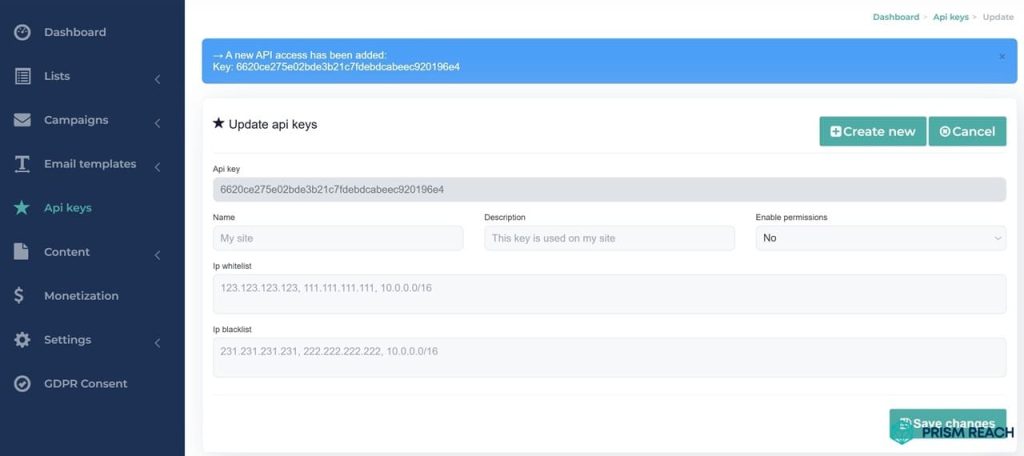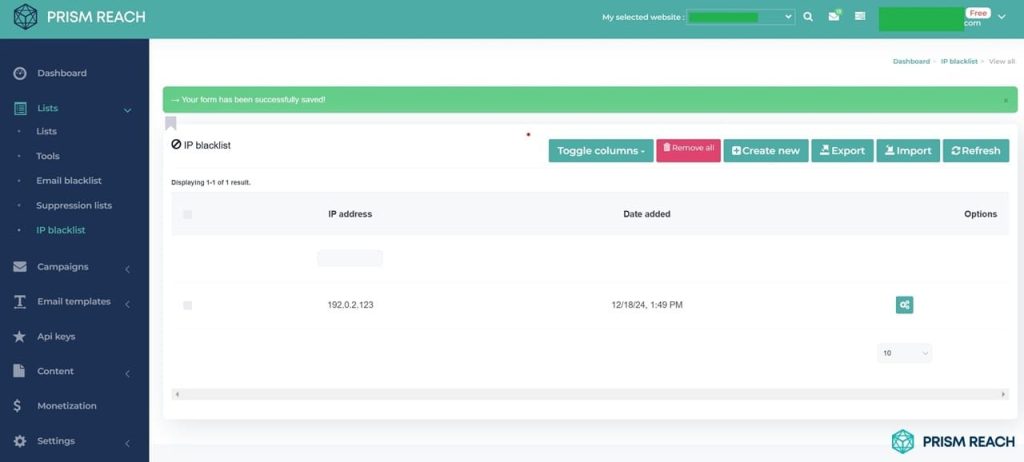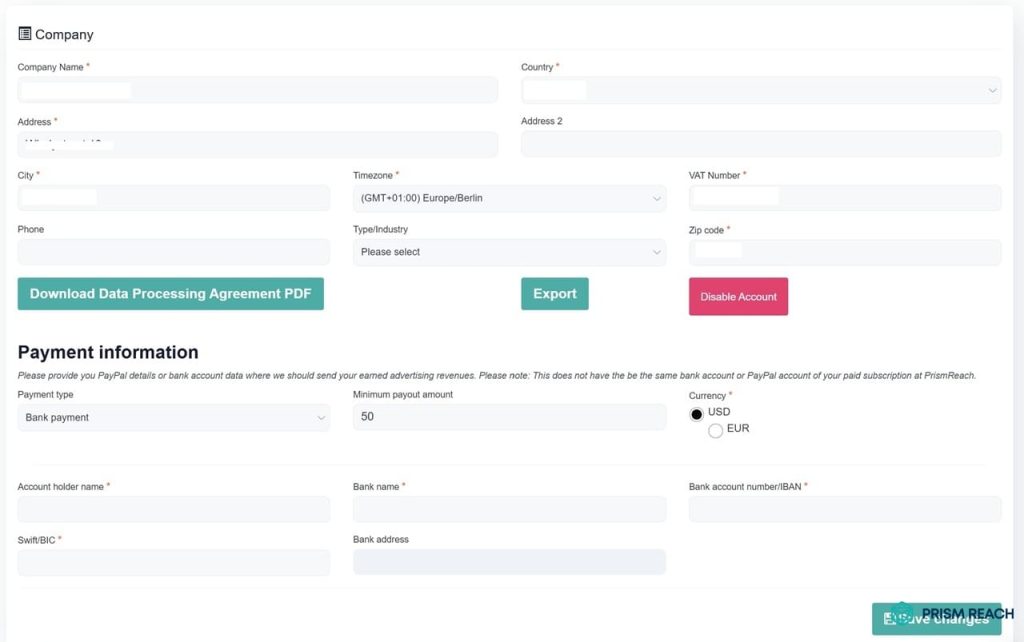In the ever-changing digital marketing realm, email remains a cornerstone of customer engagement. However, as privacy concerns take center stage, marketers face new challenges in delivering personalized content while respecting user data. This shift is not just a trend but a fundamental restructuring of how businesses interact with their audience. Recent developments, such as stricter data protection laws and enhanced privacy features like Apple’s Mail Privacy Protection, have reshaped the email marketing landscape. These changes demand a reevaluation of strategies and metrics that have long been industry standards. As we navigate this new terrain, it’s crucial to understand the key factors that will shape the future of email marketing.
Key Facts
- Compliance with data privacy laws like GDPR and CCPA is now non-negotiable, with non-compliance risking severe fines and reputational damage.
- Traditional metrics such as open rates are becoming less reliable due to privacy features like Apple’s Mail Privacy Protection, necessitating a focus on alternative KPIs.
- The shift towards first-party data and increased personalization is crucial for maintaining effective engagement while respecting user privacy.

Adapting to the New Privacy Paradigm in Email Marketing
Implement a Privacy-Centric Culture
Establishing a culture that prioritizes privacy within your organization can significantly enhance trust with subscribers. This involves training your team on data privacy regulations, emphasizing ethical data usage, and ensuring that all marketing practices align with privacy principles. By embedding privacy into your company’s core values, you not only comply with regulations but also build a reputation for being a trustworthy brand.
Utilize an Email Preference Center
An email preference center allows subscribers to manage their communication preferences, including the types of emails they receive and how often. This not only complies with regulations but also empowers users, leading to higher engagement rates as they receive content tailored to their interests. By providing flexibility, you respect your subscribers’ choices and enhance their overall experience with your brand.
Adopt a Double Opt-In Process
While many marketers use single opt-in methods, implementing a double opt-in process can enhance data quality and compliance. This approach ensures that only genuinely interested users are added to your list, reducing the risk of spam complaints and improving engagement metrics. Double opt-in also confirms the validity of email addresses, which can enhance deliverability rates and maintain a clean subscriber list.
Leverage AI for Privacy-Respecting Personalization
Use AI tools to analyze first-party data and create personalized email content without infringing on user privacy. By focusing on behavior and preferences rather than intrusive data collection, you can enhance engagement while respecting subscriber boundaries. AI-driven personalization can help you deliver relevant content that resonates with your audience, fostering stronger connections and driving better marketing outcomes.
Transparent Consent Management
Develop a clear and concise consent management strategy that outlines how user data will be collected, used, and stored. This transparency can build trust and ensure compliance with regulations like GDPR and CCPA, which require explicit consent for data processing. Providing clear information about your data practices helps subscribers make informed decisions about their engagement with your emails.

Shifting Focus to Meaningful Metrics
With traditional metrics like open rates becoming less reliable due to privacy features such as Apple’s Mail Privacy Protection, marketers are pivoting to more meaningful engagement indicators. Click-through rates, conversions, and bounce rates are now taking center stage in measuring campaign effectiveness. This shift requires a more nuanced approach to data analysis and a deeper understanding of user behavior.
- Click-Through Rates (CTR): Measure the percentage of subscribers who click on links within your emails.
- Conversions: Track the number of subscribers who take a desired action, such as making a purchase or signing up for a webinar.
- Bounce Rates: Monitor the number of emails that could not be delivered to subscribers’ inboxes.
Enhancing Data Security Measures
Implementing robust data security measures is no longer optional in the current email marketing landscape. With the increasing frequency and sophistication of cyber attacks, protecting subscriber data is crucial for maintaining trust and avoiding potentially devastating breaches. This includes regular security audits, encryption of sensitive information, and clear data retention policies.
Marketers must now consider data security as an integral part of their email marketing strategy, implementing measures such as two-factor authentication, regular software updates, and employee training on data handling best practices. Additionally, clear communication about these security measures can serve as a trust-building element with subscribers, demonstrating a commitment to protecting their personal information.
Leveraging AI for Privacy-Compliant Personalization
As the industry adapts to these changes, innovative solutions are emerging to balance personalization with privacy concerns. AI-powered tools are being developed to enhance personalization without compromising privacy. These technologies can analyze user behavior patterns to predict preferences, allowing for tailored content delivery without relying on invasive tracking methods.
By leveraging machine learning algorithms, marketers can create dynamic content that adapts to user preferences in real-time, based on aggregated and anonymized data. This approach allows for highly personalized experiences while maintaining individual privacy. AI can also assist in optimizing send times, subject lines, and content selection, ensuring that each subscriber receives the most relevant information at the most opportune moment, all while adhering to strict privacy standards.

Hidden Gem Strategies
Beyond the core factors, there are unique strategies that can significantly enhance your ability to navigate the evolving privacy landscape in email marketing. Here are five hidden gem strategies that leverage unique features of various platforms to maximize engagement and maintain compliance:
1. Implement a Privacy-Centric Culture
Establishing a culture that prioritizes privacy within your organization can significantly enhance trust with subscribers. This involves training your team on data privacy regulations, emphasizing ethical data usage, and ensuring that all marketing practices align with privacy principles. A privacy-centric culture not only ensures compliance but also builds a foundation of trust with your audience.
2. Utilize an Email Preference Center
An email preference center allows subscribers to manage their communication preferences, including the types of emails they receive and how often. This empowers users, leading to higher engagement rates as they receive content tailored to their interests. Additionally, it ensures compliance with regulations by providing clear options for data usage.
3. Adopt a Double Opt-In Process
Implementing a double opt-in process can enhance data quality and compliance. This approach ensures that only genuinely interested users are added to your list, reducing the risk of spam complaints and improving engagement metrics. Double opt-in also confirms the validity of email addresses, enhancing deliverability rates and maintaining a clean subscriber list.
4. Leverage AI for Privacy-Respecting Personalization
Use AI tools to analyze first-party data and create personalized email content without infringing on user privacy. By focusing on behavior and preferences rather than intrusive data collection, you can enhance engagement while respecting subscriber boundaries. AI-driven personalization can help deliver relevant content that resonates with your audience, fostering stronger connections and driving better marketing outcomes.
5. Transparent Consent Management
Develop a clear and concise consent management strategy that outlines how user data will be collected, used, and stored. This transparency builds trust and ensures compliance with regulations like GDPR and CCPA, which require explicit consent for data processing. Providing clear information about your data practices helps subscribers make informed decisions about their engagement with your emails.

Innovative Solutions by Prism Reach
While implementing these strategies is essential, leveraging innovative tools can further enhance your email marketing efforts in a privacy-conscious world. Prism Reach is an AI-powered SaaS solution designed to enhance the effectiveness of email marketing campaigns through deep personalization. This platform stands out by transforming how publishers and content creators engage with their audiences, using sophisticated AI algorithms to customize every aspect of newsletters based on subscriber behavior and preferences.
Key Benefits of Prism Reach:
- Increased Engagement: Publishers report up to 40% higher engagement rates due to the personalized nature of the content.
- Higher Revenue: Tailored advertising and efficient content targeting lead to higher monetization rates for published newsletters.
- Improved Productivity: Automation and AI-driven insights significantly reduce the time required to create and manage campaigns.
Prism Reach’s core functionality revolves around its proprietary AI technology, which clusters website content and social media posts into relevant categories. This AI uses a variety of data points to create detailed user avatars, enabling personalized newsletter content that incorporates factors such as location, engagement history, and predicted interests. The system’s ability to analyze vast amounts of data allows for highly targeted marketing strategies.
Benefits of Prism Reach in Privacy-Compliant Marketing
- Advanced Personalization: Prism Reach leverages AI to create highly personalized content without invasive data collection, respecting user privacy while enhancing engagement.
- Compliance Assurance: The platform ensures GDPR compliance by hosting data within Europe and adhering to the highest standards of data protection.
- Efficient Campaign Management: Automation and AI-driven insights streamline campaign creation and management, allowing marketers to focus on strategy rather than manual tasks.
Implement a Privacy-Centric Culture with Prism Reach
Prism Reach not only provides tools for personalization but also emphasizes the importance of a privacy-centric approach. By integrating Prism Reach into your marketing strategy, you can foster a culture that prioritizes data privacy, ensuring that all campaigns are both effective and compliant with the latest regulations.
Utilize Prism Reach’s AI-Powered Personalization
Prism Reach’s AI-driven personalization capabilities allow you to deliver highly relevant content based on subscriber behavior and preferences. This approach enhances engagement rates while respecting privacy by relying on first-party data and ethical data usage practices.
Leverage Prism Reach’s Data Security Features
With Prism Reach, data security is paramount. The platform includes advanced security measures such as encryption and regular security audits, ensuring that subscriber data is protected against breaches and unauthorized access. This commitment to data security builds trust with your audience and aligns with compliance requirements.
Upgrade Your Email Marketing with AI Personalization!
Conclusion
As the privacy landscape in email marketing continues to evolve, adaptability and innovation will be key to success. By prioritizing user consent, focusing on meaningful metrics, leveraging first-party data, and implementing robust security measures, marketers can navigate these changes effectively. The shift towards privacy-centric marketing is not just a challenge but an opportunity to build stronger, more trusting relationships with subscribers.
Innovative solutions like Prism Reach highlight the potential for AI-driven personalization to revolutionize how businesses engage with their audiences through email. By leveraging advanced AI to understand and predict subscriber preferences, Prism Reach delivers content that is not only relevant but also timely, enhancing the overall impact of digital marketing campaigns and fostering stronger connections between publishers and their audiences.
Ultimately, the key to successful email marketing lies not just in the tools chosen but in how effectively they are leveraged to create meaningful connections with your audience. Whether implementing privacy-centric strategies, adopting innovative tools like Prism Reach, or focusing on robust data security, the focus should remain on delivering value and fostering engagement with your subscribers.